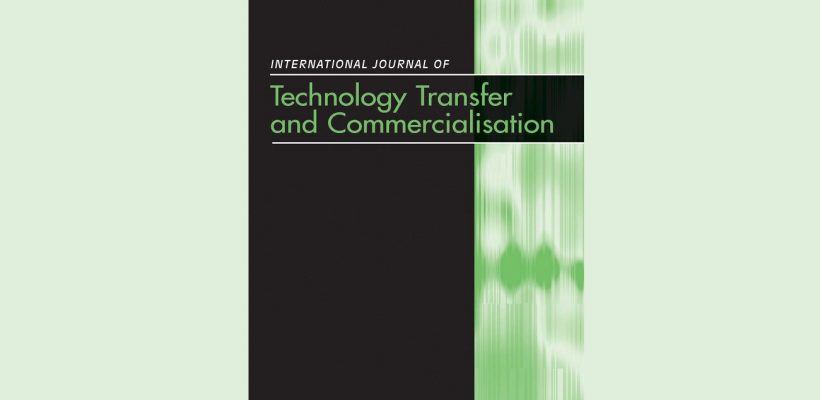
CBE Research on Technology Innovation in SMEs
3 min readThe research paper “Technology Innovation in SMEs: An Examination of Innovation Culture and Organizational Learning as Contextual Determinants” authored by Chair of the AUA Master of Business Administration (MBA) program Dr. Mane Beglaryan and College of Business and Economics (CBE) faculty Dr. Vahe Odabashian and Dr. Agassy Manoukian has been accepted for publication in the International Journal of Technology Transfer and Commercialisation.
The paper explores organizational culture and learning as contextual determinants of technology innovation. In this study, the authors have analyzed data collected from 48 small and medium-sized enterprises (SMEs) in Armenia, spanning six technology industries. The findings support the claim that innovation culture and organizational learning at the individual knowledge acquisition level are contextual determinants of technology innovation among SMEs. This suggests that organizational learning appears to be a more crucial contextual determinant than innovation culture.
“Combining themes such as corporate culture, organizational learning and innovation and determining whether they have some synergistic relationship among Armenian SMEs was an interesting concept to explore. We all know that there is a positive relationship between innovation and firm performance. Yet, there is no unified approach developed thus far to determine the exact contextual factors — such as innovative organizational culture and organizational learning — that may facilitate the process of innovation among innovative firms,” Dr. Beglaryan remarks. “This study is distinct and adds new knowledge in that specific domain. While most previous efforts have looked at causality between innovation and firm performance as a single system, discounting the various outcomes linked to contextual factors — such as corporate culture, environment, and organizational learning — among innovative firms, our research explores the interplay between corporate culture, organizational environment, and learning within innovative firms. Team spirit and effort certainly had an impact on our publication to come true, and I am glad we could combine our expertise to produce a collaborative result,” she sums up.
The research reveals that the culture of innovation in organizations helps ensure higher involvement of all employees in creating new products, services, and processes, which plays a significant role in increasing organizational performance and achieving sustainable competitive advantages. Innovation culture is essential for firms that develop new technologies. Hence, it is a significant task of corporate management to establish and maintain such a culture in their respective organizations or modify the existing culture to nurture the spirit of innovativeness.
“I believe the only way for our country to survive and thrive is innovation, particularly technological innovation. However, no matter how much we boast about the creativity and persistence of Armenians, no innovation effort would deliver the expected benefits if certain key management-related factors aren’t in place. Our research shows that innovation culture and organizational learning are among those key factors,” Dr. Odabashian highlights.
On the other hand, considering that both the external and internal environments are constantly exposing everyone to large volumes of new information, organizations that are able to acquire and learn from new knowledge have a better chance of understanding the consequences that come with change within their environments. Therefore, they are better prepared to respond to those changes in comparison with their competitors. Such knowledge acquisition, first of all, involves the individual ability of employees to acquire new knowledge from sources inside and outside the firm. As the research findings show, organizational learning at the employee level will determine the degree of success in technological innovation because, as an intangible resource, the latter is difficult to imitate or replicate. Since smaller-size organizations and particularly SMEs involved in the creation of technologies generally possess fewer resources and cannot compete with well-established and larger firms on most of the tangible resources (such as abundant R&D-dedicated equipment and physical facilities, lower costs of production through economies of scale, etc.), it appears especially important for them to develop and capitalize on intangible ones, including innovation culture and organizational learning.
Reflecting on their work, Dr. Manoukian remarks, “It has been both a great pleasure and honor to have a fruitful research collaboration with my colleagues. This type of research requires individual effort and close coordination, as well as a constant exchange of ideas. I’m glad we succeeded and I look forward to exploring new horizons together with the team.”
Founded in 1991, the American University of Armenia (AUA) is a private, independent university located in Yerevan, Armenia, affiliated with the University of California, and accredited by the WASC Senior College and University Commission in the United States. AUA provides local and international students with Western-style education through top-quality undergraduate, graduate, and certificate programs, promotes research and innovation, encourages civic engagement and community service, and fosters democratic values.
